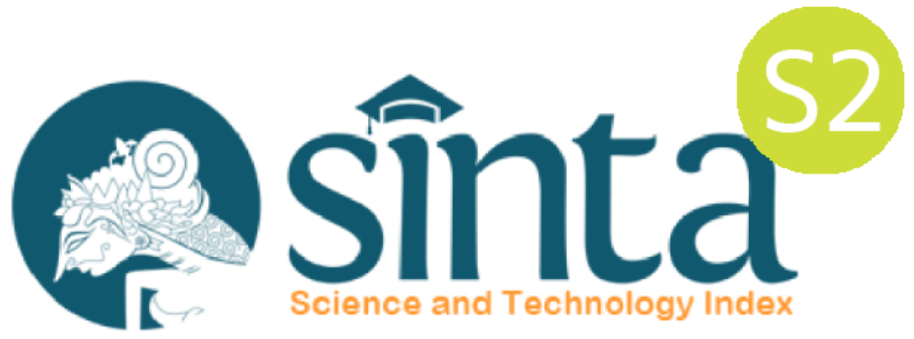PENGEMBANGAN KURIKULUM MATEMATIKA UNTUK MENINGKATKAN KEMAMPUAN SISWA DALAM PENALARAN DAN PEMECAHAN MASALAH
DOI:
https://doi.org/10.35316/alifmatika.2019.v1i1.15-27Keywords:
curriculum, mathematics, reasoning, problem solvingAbstract
The Trending topic in International Mathematics and Science Study (TIMSS) and the Program for International Student Assessment (PISA) have become a new standard for mathematics learning. One of the objectives of the study from TIMSS and PISA is to know the students' abilities in reasoning, identifying, and understanding, and using the basic mathematics needed in daily life. Or in other words, students must have mathematical literacy. The concept of mathematical literacy is intended the ability of individuals to formulate, use, and interpret mathematics in various contexts. This includes mathematical reasoning and using mathematical concepts, procedures, facts, and equipment to describe, explain, and predict phenomena or events (OECD, 2013). Indonesia has participated in TIMSS and PISA studies several times, from the TIMSS and PISA study results, it shows that students have not been able to develop optimally about their thinking abilities in mathematics schools and are still low in ability (1) to understand complex information, (2) theory , analysis and problem solving, (3) using tools, procedures and problem solving and (4) conducting investigations. In 2014, the National Council of Teachers of Mathematics (NCTM) stated that learning mathematics today is still too formal, lacks connection with the meaning, understanding, and application of mathematical concepts, and fails to give sufficient attention to the ability of reasoning and solving problem. These results indicate that there needs to be a change in curriculum orientation, which is not to burden students with content but prioritize the aspects of essential abilities needed by all citizens to participate in developing their country in the 21st century. Therefore it is necessary to develop a mathematics curriculum that enhances students' abilities in reasoning and problem solving in order to improve the quality of mathematics for students knowledge and skill in this global era.
Downloads
References
Abdusysyakin, A. A. (2006). Analisis Matematika Terhadap Filsafat Al-Quran. Malang: UIN-Malang.
As’ari, A. R., Tohir, M., Valentino, E., Imron, Z., & Taufiq, I. (2017). Buku Guru Matematika (Revisi). Jakarta: Pusat Kurikulum dan Perbukuan, Balitbang, Kemendikbud.
Council, N. R. (1989). Curriculum and evaluation standards for school mathematics. National Council of Teachers of Mathematics.
Ferrini-Mundy, J., & Martin, W. G. (2000). Principles and standards for school mathematics. Reston: National Council of Teachers of Mathematics (NCTM).
Kemdikbud. (2015). Modul Materi Pelatihan Kurikulum 2013. Jakarta: Kementerian Pendidikan dan Kebudayaan.
Leinwand, S. (2014). Principles to actions: Ensuring mathematical success for all. National Council of Teachers of Mathematics, Incorporated.
OECD. (2013). PISA 2015 Draft Mathematical Framework. Paris: OECD.org.
Suryadi, D. (2011). Pendidikan Matematika. Dalam Tim Pengembangan Ilmu Pendidikan Ilmu Dan Aplikasi Pendidikan Bagian Tiga. Bandung: PT Imperial Bhakti Utama.
Tohir, M. (2016). Hasil PISA Indonesia tahun 2015 mengalami peningkatan. Tersedia Online: Https://Matematohir.Wordpress.Com/2016/12/08/Hasil-Pisa-Indonesiatahun-2015-Mengalami-Peningkatan/ [08 Desember 2016], 1(1), 1–2.
Tohir, M. (2017). Pengembangan Bahan Ajar Olimpiade Matematika Berdasarkan Model Pemecahan Masalah untuk Meningkatkan Kemampuan Penalaran Matematis Siswa. In Tesis. Magister Pendidikan Matematika Universitas Jember. https://doi.org/10.13140/RG.2.2.31121.79200
Tohir, M. (2019). Hasil PISA Indonesia Tahun 2018 Turun Dibanding Tahun 2015. Retrieved December 3, 2019, from Paper of Matematohir website: https://matematohir.wordpress.com/2019/12/03/hasil-pisa-indonesia-tahun-2018-turun-dibanding-tahun-2015/
Tohir, M., Susanto, Hobri, Suharto, & Dafik. (2018). Students’ Creative Thinking Skills in Solving Mathematics Olympiad Problems Based on Problem-Solving Polya and Krulik-Rudnick Model. Advanced Science Letters, 24(11), 8361–8364. https://doi.org/10.1166/asl.2018.12563
Turmudi. (2008). Buku Panduan Pendidik: Matematika SMP/MTs. Jakarta: Pusat Perbukuan, Departement Pendidikan National.
Turmudi. (2009). Buku Panduan Pendidik: Matematika SMA/MA. Jakarta: Pusat Perbukuan, Departement Pendidikan National.
Wardhani, S. (2014). Implementasi Kurikulum 2013 dalam Pembelajaran Matematika SMP/MTs. Bahan E-Training Guru Matematika SMP/MTs Tahun 2014. Yogyakarta: PPPPTK Matematika.
Downloads
Published
How to Cite
Issue
Section
License
COPYRIGHT NOTICE
Author (s) who publish in Alifmatika: Jurnal Pendidikan dan Pembelajaran Matematika agree to the following terms:
- The Author (s) submitting a manuscript do so on the understanding that if accepted for publication, copyright of the article shall be assigned to Alifmatika: Jurnal Pendidikan dan Pembelajaran Matematika, Tarbiyah Faculty of Ibrahimy University as the publisher of the journal. Consecutively, author(s) still retain some rights to use and share their own published articles without written permission from Alifmatika: Jurnal Pendidikan dan Pembelajaran Matematika. This work is licensed under a Creative Commons Attribution-ShareAlike 4.0 International License.
- Copyright encompasses rights to publish and provide the manuscripts in all forms and media for the purpose of publication and dissemination, and the authority to enforce the rights in the manuscript, for example in the case of plagiarism or in copyright infringement.
- Alifmatika: Jurnal Pendidikan dan Pembelajaran Matematika and the Editors make every effort to ensure that no wrong or misleading data, opinions or statements be published in the journal. In any way, the contents of the articles and advertisements published in Alifmatika: Jurnal Pendidikan dan Pembelajaran Matematika are the sole responsibility of their respective authors and advertisers.
- The Copyright Transfer Form can be downloaded here [Copyright Transfer Form Alifmatika]. The copyright form should be signed originally and send to the Editorial Office in the form of original mail, scanned document to alifmatika[at]ibrahimy.ac.id or upload the scanned document in the comments column when sending the manuscript.























_by_Matematohir.jpg)






